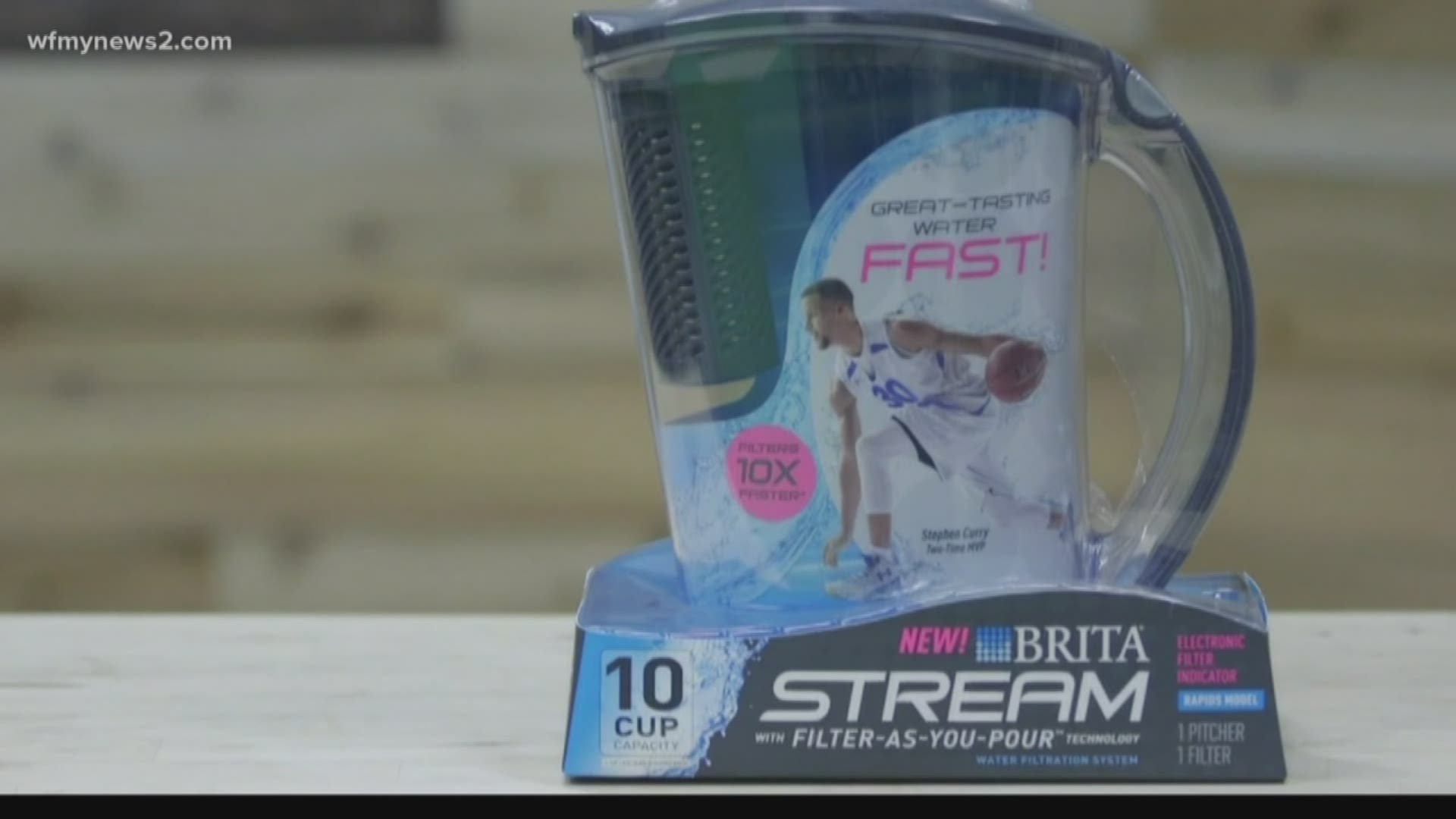GREENSBORO, N.C. —
Does your tap water taste a little funny? Well, you’re not alone. According to a recent nationally representative Consumer Reports survey of over 4,000 Americans, three out of 10 people said they’ve experienced unpleasant tastes and smells with their home tap water. Four out of 10 Americans who drink their tap water say they filter it first. But, how do you know which water filter gets the job done right? Consumer Reports just finished testing pitcher-style water filters with new ratings on popular brands.
RELATED: High arsenic levels in bottled water sold at Whole Foods, Target, group warns
Most of the pitchers CR tested successfully took care of the smell, but only one pitcher earned an excellent rating for both flavor and odor reduction, the Pur Ultimate with Lead Reduction PPT711W. Two others garnered a Very Good, The Pur Basic PPT700W and the Brita Stream Rapids OB55. But CR says that no one filter does it all. Most pitchers will remove chlorine and elements that leave a bad taste, but very few actually remove lead. In fact, only two pitchers that Consumer Reports tested actually claim to filter out lead. If there are serious contaminants in your water, a water pitcher filter may not be enough to solve your problem. And you want to be aware of when shopping for a new water filter pitcher is how long it takes to filter the water. The Brita Stream Rapids filtered 1 quart of water in just one minute and 15 seconds. In comparison, the lead-removing Pur Ultimate took nearly 15 minutes to filter a quart. It’s definitely a factor to consider if you have a thirsty household that goes through a lot of water every day.
CR also says to remember that you need to replace the filter in your pitcher as often as the manufacturer states, which is usually every two months or 40 gallons, and new filters generally range from $5 to $15 dollars in price.

